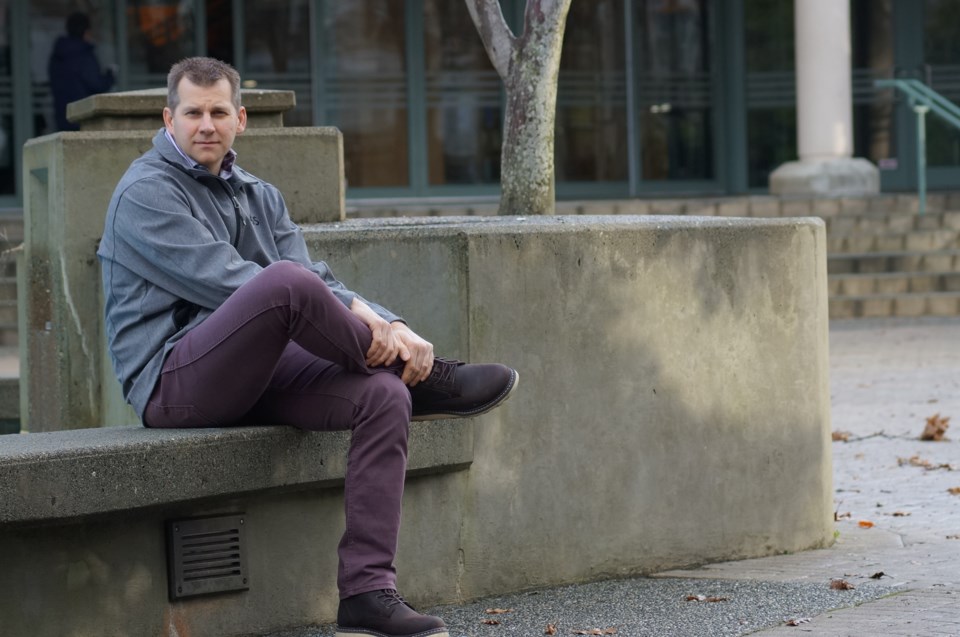Since January, 2016, 34 people have died of illicit drug overdoses in Richmond — well over the 25 who died in the previous 10 years combined. Last year, 20 families buried a loved one.
Now, Richmond Addictions Services Society (RASS) is hoping to spark an ongoing, cross-cultural conversation in the city over drug addiction and how to tackle the overdose death crisis.
Its executive director, Rick Dubras, says overcoming stigma will be one of the first — and perhaps most difficult — hurdles.
On Feb. 3 he’s inviting the public to Brighouse library for a community event that includes discussions with public health officials, first responders and recovering addicts and family members.
“We need to understand addiction, substance use, understand why people choose drugs; that’s what’s getting lost in media coverage; we need to better understand addiction,” he said.
While stigma against drug users is prevalent in most places in the West, Dubras said there appears to be added pressures placed upon the city’s Asian newcomers, who may fall into mental health problems and/or drug addiction.
Per 2016 census data there are 15,245 “recent immigrants” in Richmond, meaning they arrived since 2011. Of those, 14,165 came from Asia (8,940 came from mainland China).
Dubras wants to address any and all stigma and he hopes community leaders begin an honest conversation about what the problem is in Richmond and how it can be addressed.
“People are dying in Richmond because of overdose. People generally minimize the impact of substance abuse and mental health in Richmond. Much of that is because of stigma and I think it’s because of our mix, our diversity. We’ve got people who don’t know where to go for help. They don’t realize they can reach out for help and receive non-judgmental, compassionate care. And many people are ashamed that their family members are affected by substance abuse. That’s our biggest barrier,” said Dubras.
“This is not about throwing money at the issue. This is about figuring out from our community what are the issues, what are the barriers. Richmond is different; we’re about 75/25 non-English speaking to English speaking. It’s a very different community; we’ve got newcomers because of the airport; it’s a very different culture.
“You have to understand the population, you have to understand the culture,” said Dubras.
According to Coun. Chak Au, the Chinese community “tends to have a more conservative view” on drug use.
Vancouver community activist Melody Ma has noted public discourse needs to address “the predisposed Asian cultural stigma of drug users.”
She noted in a column to the Vancouver Sun this month that drug users are viewed in China as “morally deficient.”
Dubras said “there is no cookie cutter solution” and so a community like Richmond needs to first understand its own culture(s).
While Richmond’s 20 deaths may pale in comparison to Vancouver’s 300 deaths and the province’s 1,208 (to Oct. 31, 2017, per the B.C. Coroners Service) the stats are misleading, said Dubras.
“We don’t have a massive open drug scene, if at all. It’s nothing like what’s happening in Vancouver. But that’s because people from Richmond, or people from Surrey, go to the Downtown Eastside, to be with people who are like them. That’s just what happens in our society, because of stigma,” he said, noting RASS sees addicts from all demographics, although the deaths province-wide are decidedly males (82 per cent) age 19-59 (91 per cent).
Dubras wants to create a community action plan that goes beyond a conversation that gets lost amidst other issues.
“People are dying. We need to act. We need to change. We need to make things different.”
Dubras said as a start Richmond could use a residential detox program or some kind of flexible programming to treat Richmond residents in Richmond.



